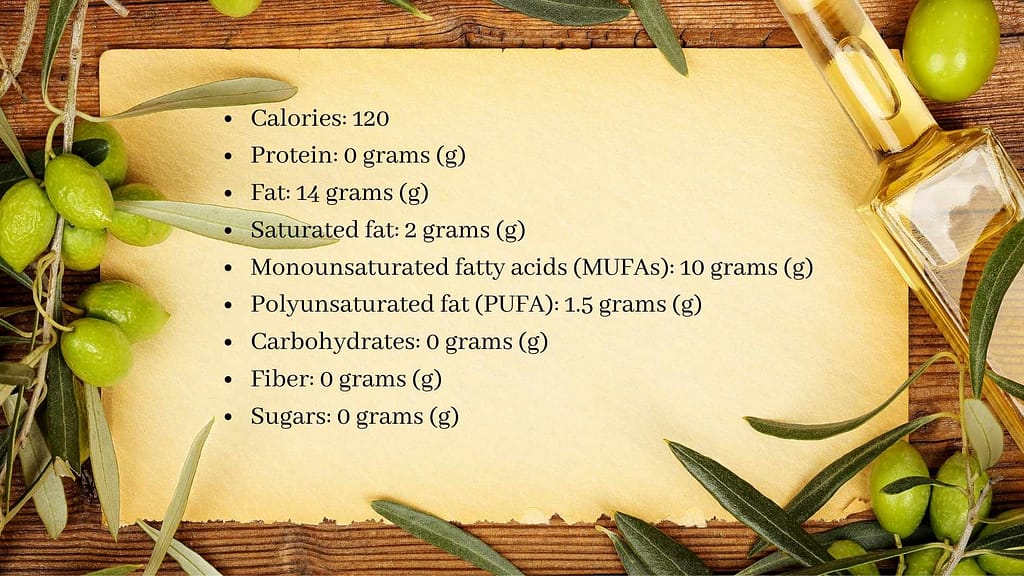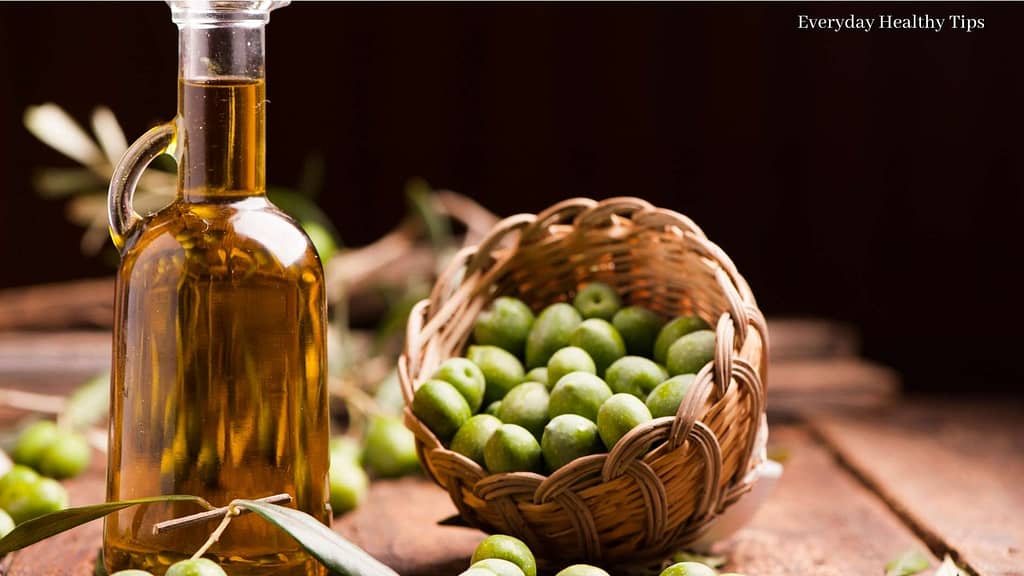Olive oil has been a staple in diets for thousands of years, making it one of the oldest forms of nutrition still in use today. As a cornerstone of the Mediterranean diet and European cuisines, it is a nutritional powerhouse that has been enjoyed for centuries.
Rich in healthy fats, olive oil is a powerhouse of nutrition and flavor, with no carbohydrates or protein in sight. Instead, all of its calories come from monounsaturated fat, a type of fat that can help reduce your risk of developing heart disease and other chronic health conditions.
Olive oil can be as varied and complex as the dishes it enhances. Color and flavor can range from light and fruity to deep and robust. Whether it is labeled virgin, extra-virgin, or pure depends on the amount of acidity and how much it has been processed.
Unlike oils extracted from a seed, nut, or grain, olive oil is extracted from the fruit of the olive tree itself, making it a unique and versatile ingredient that is at the heart of Mediterranean cooking. With its distinctively nutty flavor and its beautiful golden hue, olive oil is a must-have for any kitchen.
In this blog post I will explore the many benefits of olive oil, and why it is an ideal choice for health-conscious individuals who want to achieve a balanced diet. We will also discuss the various types of olive oil, and how they can be incorporated into different dishes and meals. By the end of the article, you will have a better understanding of the many advantages of using olive oil, and how to incorporate it into your daily diet.

Olive Oil Nutrition Facts
A tablespoon (about 14 grams) of olive oil, you’ll find:
- Calories: 119
- Protein: 0 grams (g)
- Fat: 14 grams (g)
- Saturated fat: 2 grams (g)
- Monounsaturated fatty acids (MUFAs): 10 grams (g)
- Polyunsaturated fat (PUFA): 1.5 grams (g)
- Carbohydrates: 0 grams (g)
- Fiber: 0 grams (g)
- Sugars: 0 grams (g)
Health benefits of olive oil
Olive Oil good for your heart
Olive oil has numerous health benefits, especially when it comes to cardiovascular health.
First, let’s talk about the composition of olive oil. Olive oil composes of monounsaturated fatty acids (MUFA), specifically oleic acid. This type of fat reduces low-density lipoprotein (LDL), the “bad” cholesterol, and increases high-density lipoprotein HDL, the “good” cholesterol. Balancing of cholesterol levels can help to reduce the risk of heart disease and stroke.
The Food and Drug Administration and European Food Safety Authority have suggested a daily intake of 20 grams or two tablespoons of extra virgin olive oil to help reduce the risk of cardiovascular disease and inflammation, as noted by a 2018 review.
In addition to its beneficial effect on cholesterol levels, olive oil is also high in antioxidants. Antioxidants help to protect the body against damage from free radicals, which can lead to the development of cardiovascular disease. The oil contains polyphenols, which have been shown to have a beneficial effect on blood pressure, as well as reducing inflammation in the body.
Olive Oil good for your skin
Olive oil is one of nature’s most potent beauty secrets. It is a truly unique and powerful ingredient that has been used for centuries due to its many benefits.
It contains two incredible compounds called Squalene and Vitamin E. These two components work together to provide optimal support for the skin. While Squalene helps the skin retain moisture, vitamin E increases the skin’s capacity to absorb and hold water.
It has been found, as per 2009 research, that Substances related to squalene, including β-carotene, coenzyme Q10 (ubiquinone) and vitamins A, E, and K, appears to be critical in reducing free radical oxidative damage to the skin.
In addition Olive oil also contains alpha-hydroxy acids, which have powerful anti-aging properties. These acids stimulate the shedding of dead skin cells and encourage the growth of new, healthy ones.
The result is a smoother, brighter complexion that can make you look years younger in a matter of moments. Olive oil has been known to reduce the appearance of wrinkles and fine lines, as well as improve skin tone and elasticity. Its antioxidants also help to combat free radicals, protecting your skin from environmental stressors.
With so many amazing benefits, it’s no wonder that olive oil is a favorite among those seeking to keep the skin looking and feeling its best.
Olive Oil good for your hair
One of the most covert causes of hair loss is the secretion of a hormone called dihydrotestosterone. This hormone has a role in androgenetic alopecia.
It does this by attacking the hair follicles and weakening the hair from its very roots up, which ultimately results in a gradual loss of strands.
Olive oil can help reduce hair loss by preventing the creation of dihydrotestosterone. This, in turn, will promote the growth of hair that is both healthy and beautiful, as well as produce a mane that is thicker and more luxurious.
A fascinating study conducted by researchers has revealed the potential benefits of olive oil for hair growth. The study found that when oleuropein, a key constituent of olive oil, was applied topically to the scalp, it had a remarkable effect on hair growth. The results showed that after just a few weeks of regular use, hair volume and length increased significantly. This could be a game-changer for anyone looking to achieve thicker, healthier hair.

Olive Oil Allergies
Allergies to olive pollen seem to be a common problem in Mediterranean countries, where the prevalence of olive trees often leads to increased exposure.
But an allergy to olives or olive oil can be surprisingly rare, with only a few cases being reported worldwide. It’s easy to assume that any kind of sensitivity to olives, whether it be food or topical, would be due to the fruit itself.
However, the allergen is much more likely to come from the pollen, making it all the more important for those living in Mediterranean countries to take the necessary precautions.
An early study reported that an astonishing 13 cases of contact allergy to olive oil had been documented. To the surprise of researchers, however, none of the known components of olive oil could be proven to be the cause of the allergy.
And while there is always a risk of an allergy or sensitivity to olives and olive oil, it can be reassuring to know that the chances of experiencing a reaction are low
Is Olive Oil safe for everyone?
Olive oil is a powerhouse of nutrients, and if used in a sensible manner, can be integral to a healthy and balanced lifestyle.
Instead of taking olive oil as a supplement, why not try adding it to your meals? It can be used as a delicious salad dressing, and as a bonus, you’ll be getting your daily dose of the beneficial fats. About 70g (2½ oz) of fat per day is the general maximum recommendation for adults. Of course, it’s important to keep in mind that not all fats are created equal.


